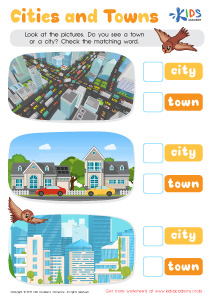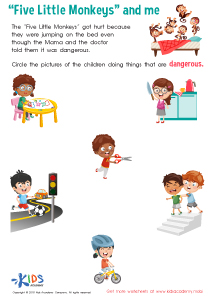Critical Thinking Easy Reading Comprehension Worksheets for Ages 7-9
5 filtered results
-
From - To
Discover our engaging "Critical Thinking Easy Reading Comprehension Worksheets" designed specifically for children aged 7-9! These thoughtfully crafted worksheets help young learners develop essential critical thinking skills through fun and interactive reading exercises. Each worksheet encourages students to analyze, interpret, and draw conclusions from various texts, fostering a deeper understanding of language and context. With colorful illustrations and age-appropriate content, kids will enjoy honing their reading comprehension abilities while boosting their analytical thinking. Perfect for both classroom activities and home learning, our worksheets will inspire curiosity and promote a love for reading. Start enhancing your child’s critical thinking skills today!
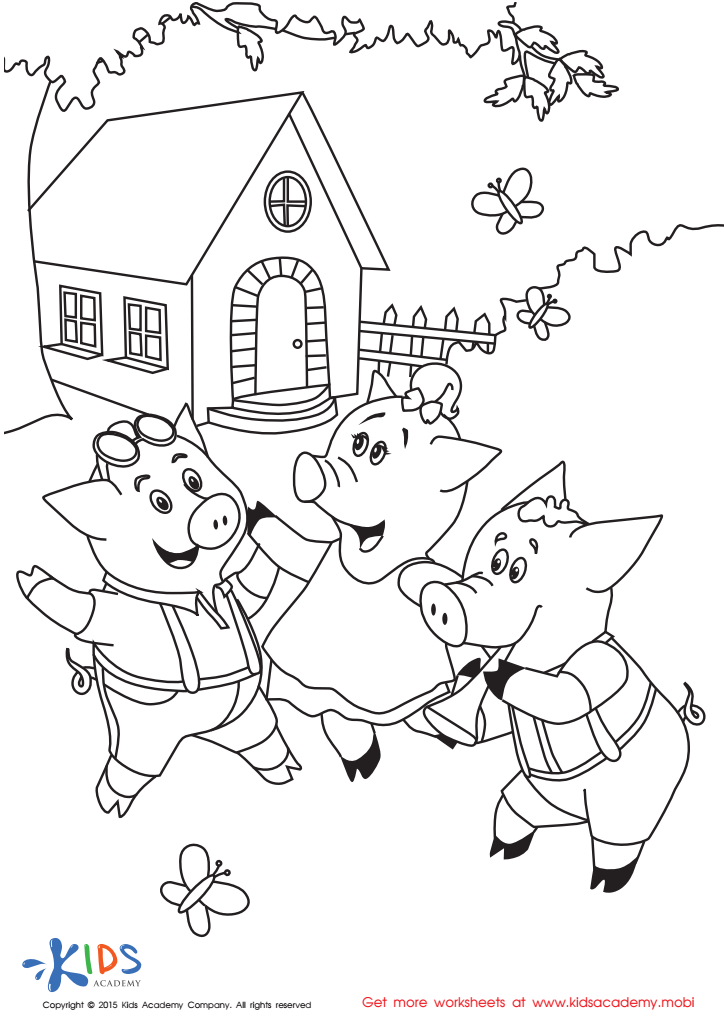

Folktales Printable PDF Worksheet: The 3 Little Pigs
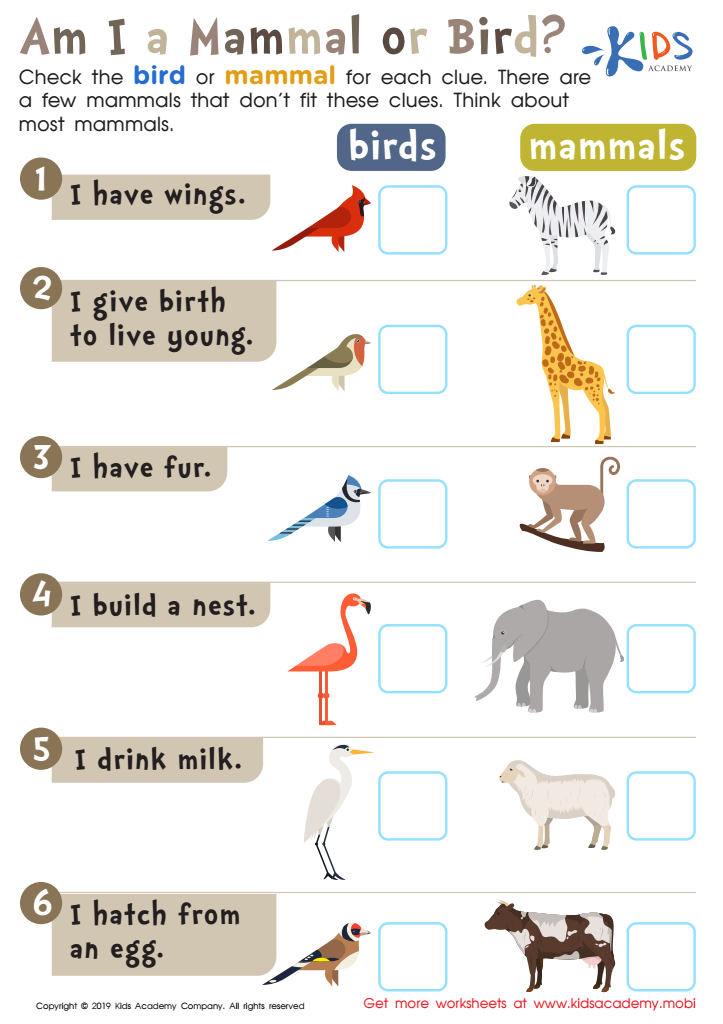

Am I a Mammal or Bird? Worksheet
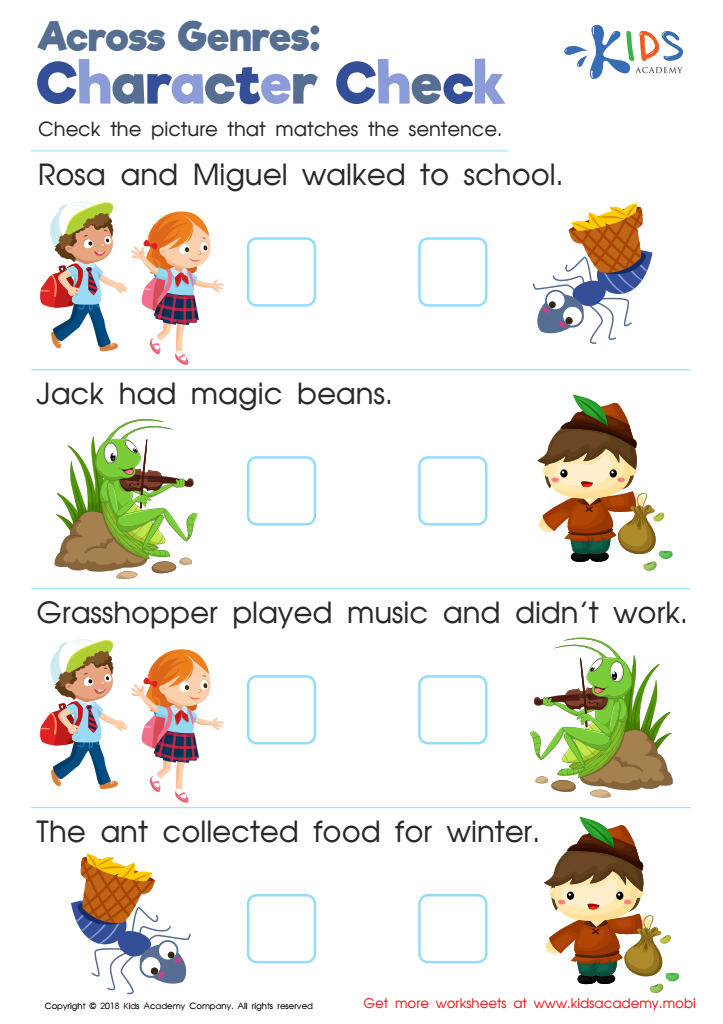

Across Genres: Character Check Worksheet
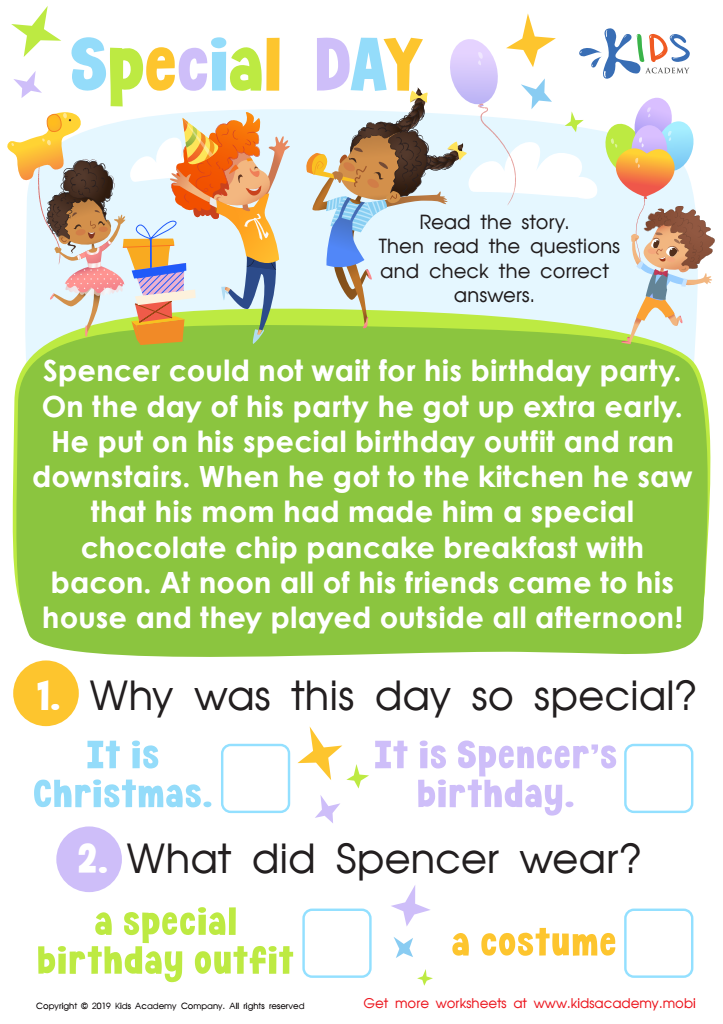

Special Day Worksheet
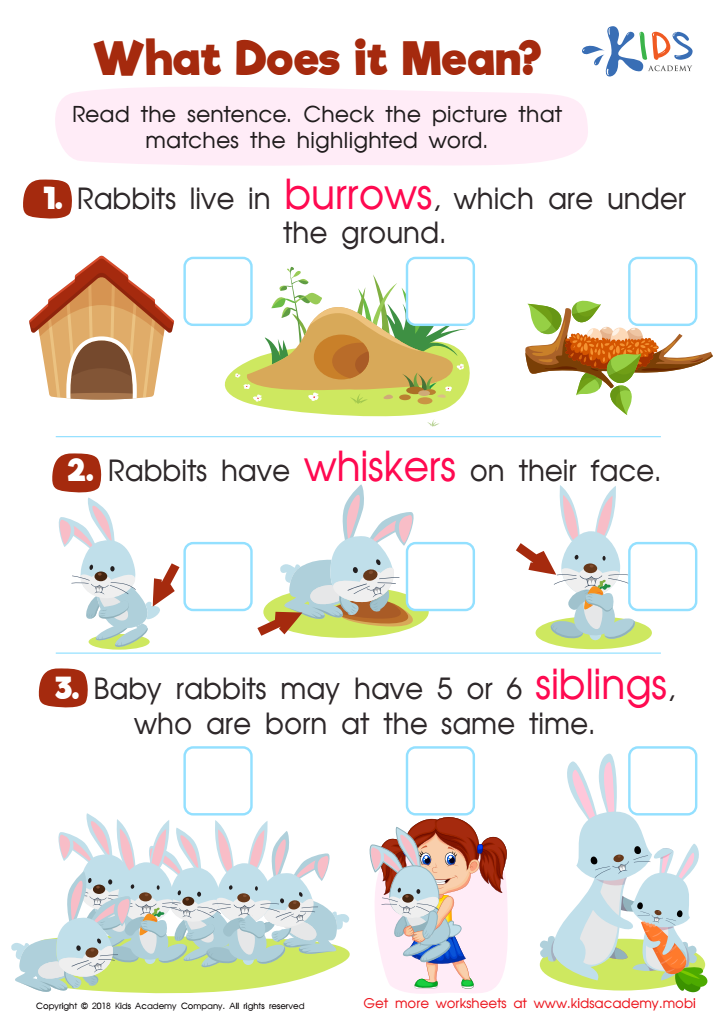

What Does It Mean? Worksheet
Critical thinking and reading comprehension are vital skills for children aged 7-9, and parents or teachers should prioritize these areas for several reasons. Firstly, this developmental stage is crucial for shaping a child's cognitive abilities. Encouraging critical thinking enables children to analyze information, question assumptions, and make reasoned decisions. This not only boosts their academic performance but also prepares them for complex problem-solving in everyday life.
Furthermore, reading comprehension goes beyond mere understanding of text; it involves engaging with content, making inferences, and drawing connections to real-world scenarios. When children develop strong reading skills accompanied by critical thought, they become active and reflective learners. This lays the groundwork for higher-order thinking skills, such as synthesis and evaluation, which are necessary as children progress in their education.
Moreover, fostering these skills fosters curiosity and a love for learning. Children who think critically and comprehend well are more likely to engage with their studies and develop a passion for reading, which contributes to lifelong learning. In a world overflowing with information, the ability to assess and interpret data becomes increasingly important, equipping children not just for school, but for informed citizenship in a complex society.
 Assign to My Students
Assign to My Students










